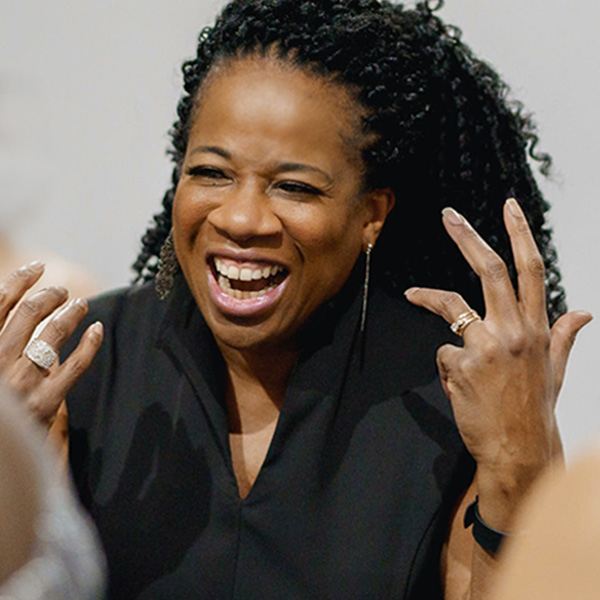Adam Gopnik, BA’80, DLitt’13, first made his mark as an art critic before he branched out to write about, well, practically everything. The longtime New Yorker staff writer and best-selling author was initially known mostly for his incisive coverage of the art world. It turns out, he was harbouring a guilty secret during that period, one that haunted him for years.
You see, Gopnik couldn’t draw very well.
As he puts it in his recent book The Real Work: On the Mystery of Mastery, “I would mistrust a poetry critic who couldn’t produce a rhyming couplet.”
Not too long ago, Gopnik decided to finally do something about it. He found a good teacher and, slowly, painfully, he made progress. He acknowledges that his drawings will never be hung in a museum, but he takes pride in the fact that he is now much better at it than he once was.
The Real Work follows Gopnik as he challenges himself to become better at a broad range of things.
An ode to accomplishment
He learns how to drive. He trains with a boxing instructor. He signs up for dancing lessons with his daughter. With the help of a therapist, he confronts a longstanding social phobia that has caused him discomfort for decades – paruresis (also known as shy bladder syndrome). And he tags along as his son works at mastering a new skill: learning how to perform card tricks from a seasoned magician (big-name magic stars like David Blaine, David Copperfield and Raymond Teller all make memorable appearances in that chapter).
While each section of the book tells a tale of its own, there is a connective theme. Gopnik examines what it means to master something – not in the sense of becoming the absolute best there is at it, but becoming proficient enough to have confidence in your ability to do it reasonably well.
“What really moves and stirs us is accomplishment, that moment of mastery when suddenly we feel that something profoundly difficult, tenaciously thorny, has given way, and we are now the Master of It, instead of being mastered by it,” Gopnik writes.
In a recent interview, Gopnik further expanded on the topic. “I will never be put in the [boxing] ring with anybody, unless we can find another five-foot-five, 66-year-old Jewish intellectual, but I don’t need to,” Gopnik says. “I know I’m a much better boxer now than I was two years ago and a better boxer than I was even six months ago.”
“That sense of constant improvement in what was once a formidably difficult task is one of the most stirring feelings that we can experience. It’s the most powerful cognitive opiate out there.”
The Real Work takes its title from a phrase that magicians commonly use amongst themselves. It is one thing to know the secret behind a magic trick. It’s another to be able to do that trick skillfully, to entertain an audience with it, and to nimbly distract that audience from recognizing how you did it. Learning how to master all that is the real work of magic, and it is a painstaking process.
Gopnik draws a distinction between accomplishments and achievements in the book. He characterizes the latter as the types of things that look good on a CV, the types of things that might make you stand out to the admissions department of an Ivy League university. Learning how to perform magic tricks well is definitely an accomplishment – but it probably won’t get you into Harvard.
“I think achievement is wildly overvalued and the workings of private accomplishment are institutionally undervalued,” says Gopnik, describing accomplishments as “the self-driven and self-directed things that we do, for its own sake and for our own pleasure.”
Accomplishments can lead you to your life’s passion – and not always in a straightforward or predictable way. Gopnik points to the acclaimed Scottish poet Don Paterson who, as a child, was obsessed with origami, the Japanese art of folding paper into different shapes. In a recent memoir, Gopnik notes, Paterson credited his keen youthful interest in origami with helping him to find his distinctive voice as a poet.
The subject of Steve
While Gopnik was writing The Real Work, he was busy with a second project – an audio book called So Many Steves: Afternoons with Steve Martin, a series of interviews with his famous friend that focuses on the celebrated actor/writer/comedian’s career and its frequent shifts.
Martin is a man of many accomplishments – a Grammy Award-winning musician and a highly regarded art collector among them – and he often seems to move on from things once he has achieved success in them. He no longer performs stand-up comedy which is where he first found fame (Gopnik describes him as “in many ways, the first rock star of comedy”). He became a respected playwright and fiction writer but hasn’t produced a play, a novel or a novella in years.
“I was working on my book while I was biking over to Steve’s place in the afternoons to have those conversations with him,” says Gopnik. “It’s probably not coincidental that the two projects had some overlap [in the themes they explored].
“It’s true that one of the interesting things about Steve is that he does so many things and it’s peculiar and interesting as well that he tends to abandon things after he’s mastered them,” says Gopnik.
In So Many Steves, Gopnik offers up the theory that Martin is driven by “a need to demonstrate to himself that he is capable of doing” all these divergent things. Martin himself isn’t so sure, countering that, “I would prefer to do just one thing and have a masterpiece.”
As Gopnik interviewed his friend, he realized that there was one important project that Martin had been diligently sticking to.
“Steve has transformed enormously in the 30-plus years that I’ve known him. And he made it plain that this change was something he had consciously pursued.” Gopnik explains that Martin wasn’t always comfortable about expressing his emotions, that he could be a little closed off. Massive, unexpected fame only complicated things, adding to his natural wariness.
Martin had frequently collaborated with another comedy legend, Carl Reiner, on films like The Jerk and Dead Men Don’t Wear Plaid. Reiner was widely regarded as a mensch and a man who was profoundly comfortable in his own skin.
“Steve recognized that Carl Reiner had an ease in the world that he envied,” says Gopnik, “and he went about imitating Carl Reiner. Reiner epitomized a particular kind of high-spirited Jewish geniality.
“That was very moving to me,” says Gopnik, “that Steve had recognized his dilemma and acted to remedy it. His very happy marriage and the fact that he is getting to spend his [recent years] as a father was a beautiful consequence of that decision.”
The power of perseverance
Now that he has mastered a few new skills, I ask Gopnik if he has any advice for others interested in tackling something new – say, a middle-aged alumni magazine editor who has long been sheepish about his inability to skate.
First, he says, you need some humility. “Being bad at something at the beginning is part of it,” says Gopnik. “I was so frustrated when I started drawing, I was literally in tears by my initial incapacity at doing it. But it is encouraging to know that we do get better at things over time and the way we get better is pretty much always the same. All of my experience shows that passionate perseverance will pay off. The other key thing to remember is to get yourself a good teacher.”
We encounter many memorable teachers in The Real Work. One will be particularly familiar to many McGillians. Myrna Gopnik, Adam’s mother, a McGill professor emerita of linguistics, and an inventive whiz in the kitchen, offers up a lesson in baking (her son is a talented cook, but breads and desserts are not his forte).
Both of Gopnik’s parents taught at McGill. His father, Irwin, was a longtime English professor and, for a decade, McGill’s dean of students. They now live in rural Ontario where they’ve collaborated on the creation of several imaginative structures on their property, including a Japanese teahouse, a mammoth chessboard with life-size pieces, and an Elizabethan theatre, “responding to their own unaltered eccentricities and the changing passions of their grandchildren,” Gopnik writes in The Real Work.
I mention that I used to cover McGill’s Senate meetings in the early nineties when both his parents served as senators. When university issues came up for debate, the two sometimes made it plain that they didn’t always see eye-to-eye.
Gopnik laughs at this. “And they would still be arguing about Senate when they got home that night! Mine was a family of unimpeded argument at the table and around the table. My parents both loved Senate and they loved McGill. Academic life can sometimes be tainted by a certain kind of disillusioned irony or disappointment. They never felt that way about their own academic careers or about the University.”
A star turn in Tár
As The Real Work makes clear, Adam Gopnik has been busy mastering a number of different skills in recent months. One thing that the book doesn’t mention is his foray as an actor in one of the most heralded motion pictures of 2022.
In the opening scene of Tár, which earned six Oscar nominations and a pile of other awards, world-renowned conductor Lydia Tár is interviewed on stage by … Adam Gopnik.
“The funny thing about it is that people somehow have the impression that it was an unscripted improvisation, and it wasn’t that at all,” says Gopnik. “It was a role that had my name attached to it, but it was not really me. I was impersonating a guy with my name and obviously my features, but saying things that I would not necessarily have said and being naïve in ways that I not necessarily am.”
For instance, having read the scene, Gopnik noticed that some of the things that Tár says couldn’t be true. The dates didn’t line up properly. When he mentioned this to director Todd Field, “I received this long baleful look from him and I realized, okay, we’re not going to enter into that.” (The inaccuracies were intentional and they end up being an important plot point.)
With both The Real Work and So Many Steves, Gopnik has been thinking a lot lately about how people become good at what they do. Tár gave him the opportunity to witness one of the greatest actors of this era up close.
“When I was running the lines for that long scene with my wife Martha, we were both a little bemused. It was so expository, there was so much backstory being narrated, [we wondered] how was this possibly going to be interesting to audiences? And then I saw how Cate Blanchett took what could have been a very dry scene and loaded it emotionally. She found psychological motivation and nuance and significance in that long expository scene. You became aware of the character’s brilliance and her pretensions and her insecurities. It was astounding to just sit there and watch her do that,” Gopnik says.
“I once did a one-man show at the Public Theater in New York, and I was an actor as a kid, so this wasn’t my first rodeo, but it was an absolute joy to work with her. It was very much like playing with a master tennis player who knows exactly how to put a serve directly on your backhand.”


